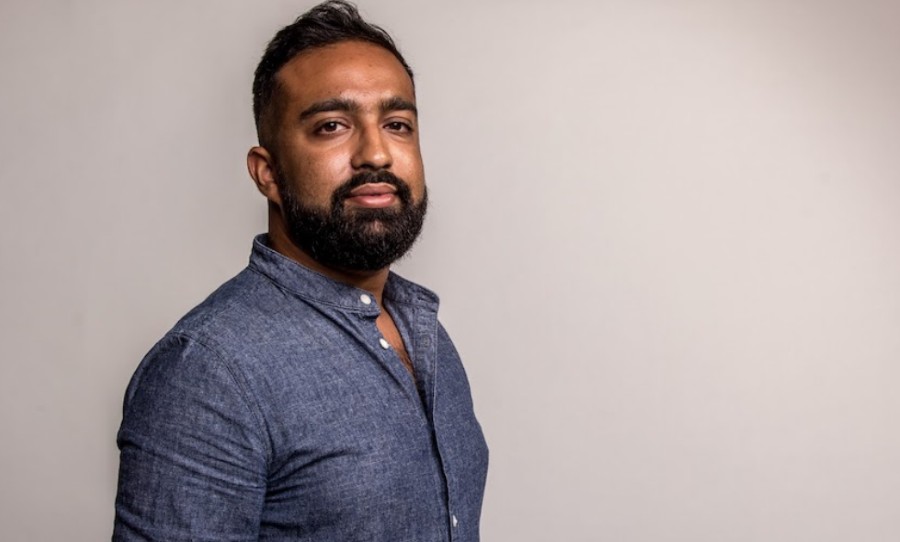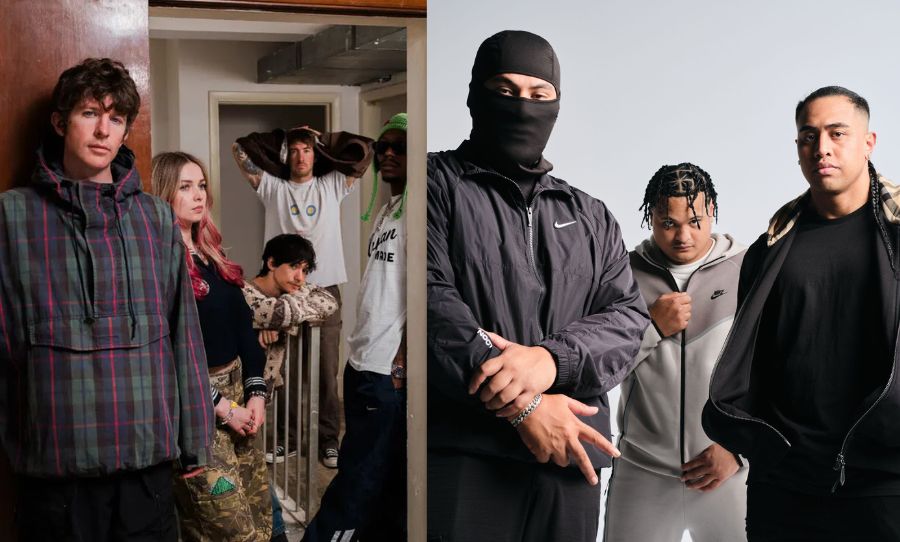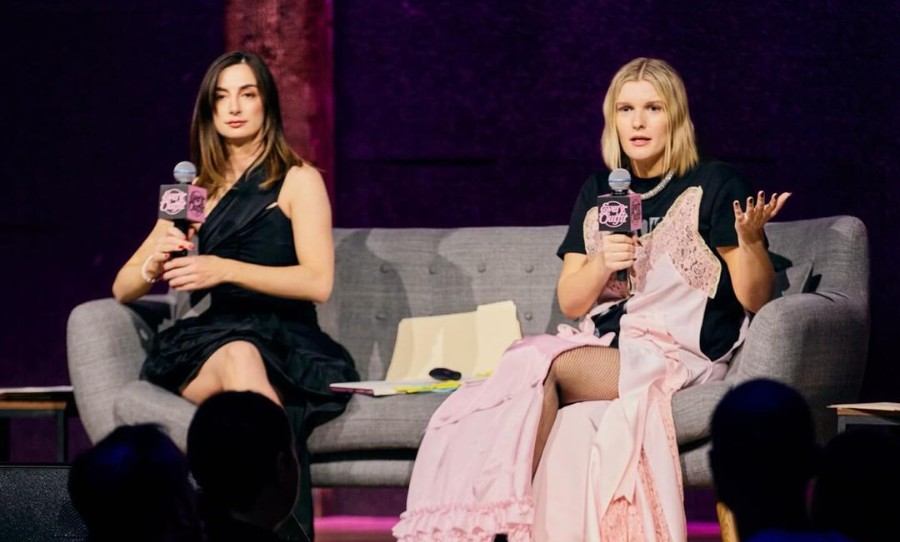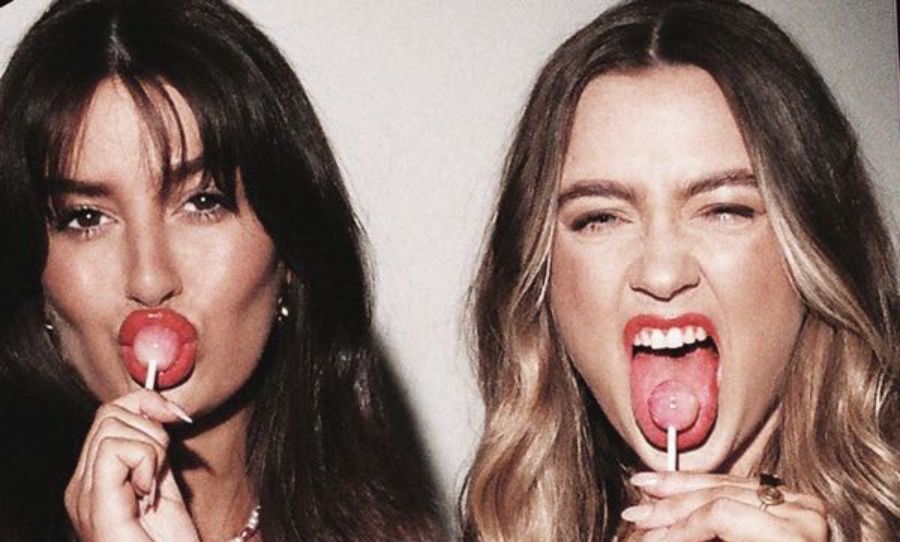Osman Faruqi is no stranger to the media world – and with his latest podcasting venture – he is ready to unpack all things arts and culture.
Osman Faruqi is a celebrated Australian journalist with a long list of recognised work to his name. He’s done the hard yards in some of Australia’s most prestigious newsrooms, including the ABC and The Guardian.
Now, he is expanding his already impressive portfolio by launching a brand new podcast. Osman sat down with Happy to chat all things audio, his latest podcasting venture The Culture, and what it takes to create your own.
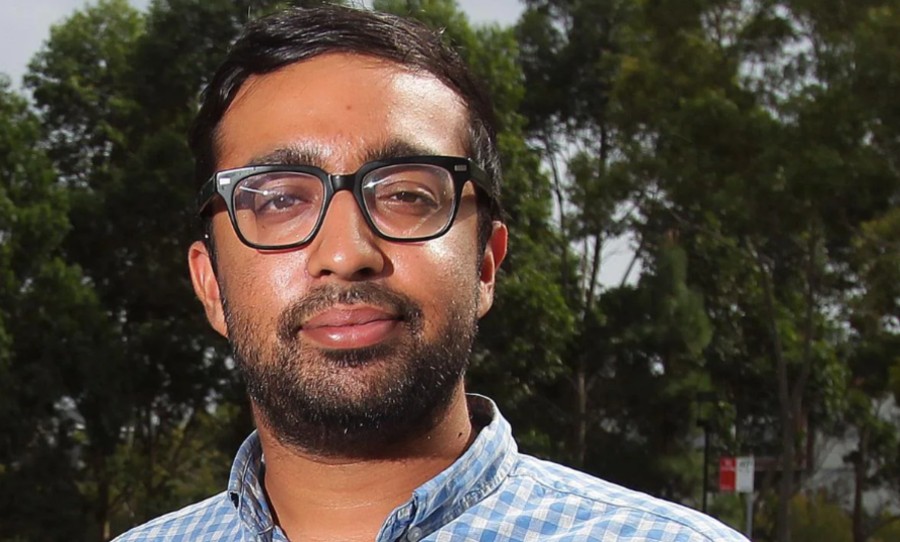
HAPPY: You have experience with some of Australia’s best newsrooms and as an editor for the award-winning 7am daily news podcast. What will it be like now hosting your own show?
OSMAN: So that’s a really great question and I am a little bit scared I have to say. Having spent the last year and a bit working more behind the scenes, I am used to giving people direction. It’s fun to give people orders and to get them to ask certain questions or to frame the conversation in a certain way, but it’s really hard to now be on the other side.
The goal I think of a really great podcast, in particular, is to sound as natural and conversational, and as relaxed and approachable as possible. A lot of work actually goes into sounding like that. It’s almost this interesting Catch-22 where you don’t want to sound like you are putting in that much work, but to achieve that, it does actually take a bit of extra time.
I think having been an editor at 7am for the last little while, it’s helped me understand what those skills are that help you sound good and obviously working with someone like Ruby Jones, who is so good at her job, and a really great person to learn from.
I got my start in media and community radio at FBI in Sydney talking about music, news and culture, so in a lot of ways, this is already something I am super relaxed and comfortable with. Hopefully, I don’t try and get in my head too much. I just need to try and relax and do it as if I was talking to someone at the pub.
HAPPY: And do you think it makes it easier to achieve that really natural, conversational tone in a podcast when you’re discussing a topic that is a reflection of your passions and personality?
OSMAN: I think that’s spot on actually. I have worked in news and current affairs for most of my career as a journalist but the topics that we are going to be talking about on The Culture, are things like music, film and TV, which are things that I annoy my friends about all the time anyway.
They are conversations I have every single day and think about all the time and they are the kind of podcasts that I enjoy listening to as well. So there definitely is that element of feeling natural and relaxed, for example spending an hour talking about Olivia Rodrigo, which is our next episode because I have already spent four hours over the past week discussing that topic.
If anything the challenge is to not talk for too long because people don’t want to hear me talk for hours. What’s so interesting about topics on culture is that it is what we consume every minute of our lives. People might not be huge news consumers but you would be hard-pressed to find someone who doesn’t listen to music, watch TV or stream movies. It’s such a natural entry point as a conversation. If you think about going on a first date, what are the first few questions that people ask? What have you been watching, what have you been listening to?
It’s a natural ice breaker and I think that is something that I think about when I am easing myself into these conversations.
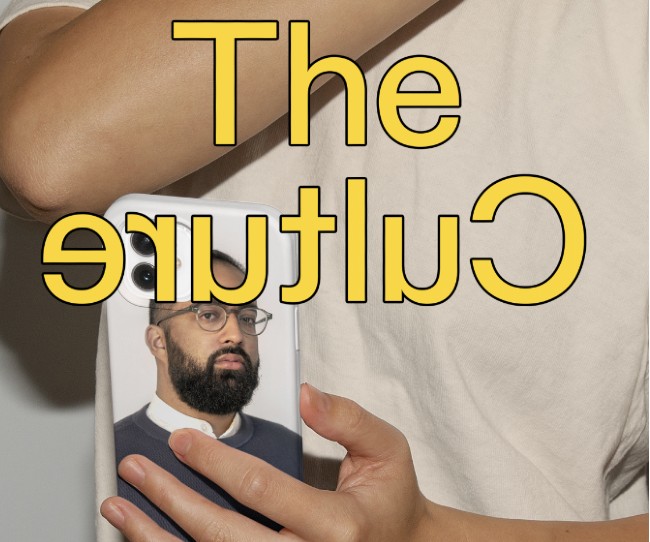
HAPPY: Absolutely. You’re finding that middle ground between strangers, how you can relate to one another and pop culture is definitely one of the best topics to go about that. In contrast, have you ever been in a position where you have had to produce work outside of that comfort zone? Contrary to your own philosophy and beliefs?
OSMAN: These are really great questions, I think about that a lot. I think that’s what being an editor and presenter is all about. I get messages from friends and from colleagues that listen to 7am and they say “I don’t really agree with what your guests said” or “I don’t think that you would agree with what your guest said”.
This is interesting because I think sometimes people assume that when you are in charge of a podcast, everything is like Joe Rogan where it’s your platform to espouse your views and just pop off about your opinions. I have the opposite view where I think if people want to go to someone who is just ranting about what they think, that’s fine and legitimate, but that’s not what I think is the most engaging.
I think my job as an editor, especially at 7am, is not to curate the perfect podcast that is just Aussie propaganda. It’s to actually let the reporter and journalists we speak to outline their own stories and their analysis and apply the basis of fair and balanced journalism.
Similarly, with The Culture, my views and passions come into the show on the kinds of topics we will talk about and the way we frame them, but I couldn’t think of anything worse than just listening to me talk about my opinions for half an hour long. I want to share my insights and views because I enjoy being a critic of pop culture but I also want to convey that in a way that is approachable to everyone.
Even if people don’t agree with my particular take on a record or show, they still get insight out of it. The kind of guests I am getting on the show are really, really smart critics who I might agree with sometimes but my job is also to try and tease out some complexities, so there is that point of tension. It’s not like an argument, it’s not like me trying to berate them into saying they’re wrong and I am right but us trying to capture the breadth of views on stuff that is extremely popular and interesting right now.
HAPPY: I guess that then falls into some of the ethical processes in creating a podcast, making sure it’s balanced and well-rounded. Do you have any difficulties in ensuring that? Especially because both 7am and The Culture are relatively short segments. Thirty minutes is not a long time to really touch on every single voice of a particular topic.
OSMAN: Absolutely and I think something that I am really passionate about is not just being balanced and fair but making sure that there is a diversity of voices that represents the actual community. There’s that joke, “What do you call three white guys in a lounge room?” and it’s a podcast, right? — and I think I am super conscious and super aware of my own blind spots. I think about the sort of life experiences that I can draw from and those that I can’t.
Every episode, whether it’s a 15-minute 7am episode or a 30-minute episode of The Culture, you can’t capture every view or perspective on a topic and I think it would be difficult to try. We should definitely still try to reflect on those differences in opinion and sometimes it might not come from me.
For example, I am not a teenage girl and I fully appreciate that most of Olivia Rodrigo’s fans are. I actually quite liked the record but my reasons for liking it might be different to why her fan base does. So from that, I think it’s partly my responsibility to try and inject those perspectives into the discussion as much as possible. I do think music and culture writing more generally is a bit notorious for having gatekeepers that are older white dudes who can be quite condescending toward younger women in particular, and I believe that is something I am conscious of.
To go back to your question, but I think it’s covering the breadth of all the episodes we do. I want to make sure it’s about the diversity of voices, people from different backgrounds, sexualities, genders, life experiences and expertise, so that people come to our podcast knowing that it does capture what the community actually looks and sounds like.
HAPPY: I guess that’s why podcasts have such a big team behind them. It’s not just about the one voice you hear, there is a whole variety of people working together to get the show off the ground. What skills and what departments are necessary for producing a high-quality audio story?
OSMAN: Another really great question and I think again the goal of a really great sounding podcast is to sound like just two people are sitting in a room talking naturally. But you’re totally right, there’s a real big mix of perspectives, experiences and skills required.
In terms of making the podcast itself, I am so glad to have the best producers I have ever worked with both at 7am and The Culture. The amount of effort and time that goes into thinking about what the topic we want to cover is, who do we want to cover it with, how we want to cover it and what the questions are we want to ask and those we don’t.
We listen to the rough cuts of episodes to decide which bits are important to keep and which bits can be lost. Look, one person can do that but it is not going to be good if you just do that all on your own. That’s why it is so important to have voices and experiences that can help you understand what connects and that’s just the editorial side of things.
I am super thankful to have the team at Schwartz on the commercial side of the business. They are so good, smart and passionate about what we do. They are the ones that will find us partners that will advertise with us, giving us the money and resources it takes to make the show. They will help me line up media opportunities to talk about the show, the ads that are in the print paper and on posters because right now, particularly with podcasting, it’s a medium that allows you to build an audience from nothing relatively quickly.
Yet, it is massively enhanced when you have a group of smart people that understand how to reach audiences, whether that’s through social media or traditional marketing. I think when that works hand-in-hand with a really smart editorial team. That’s ultimately how you create a really good product and get it in front of thousands and thousands of people.
HAPPY: That’s probably one of the reasons why podcasting has really blown up. It has become a medium where you can build an audience from nothing with that intimacy and friendly nature where it’s just you and that other person, feeling like they are only talking to you. In saying that though, there are so many out there, what will set The Culture apart from other similar shows?
OSMAN: It’s exciting seeing the explosion in daily news podcasts over the last couple of years. I think 7am was one of the first and now there’s like fifteen or twenty. In some ways that is exciting because it shows that the medium is growing and people are understanding the value that it brings but in other ways there’s now more competition.
Ultimately, it’s a good thing. And what’s interesting — despite the extra competition — our numbers keep going up. I believe it speaks to the trust, care and quality that we put into it and similarly, with The Culture, if I am honest, part of my motivation in making this show is that I didn’t see that many longer-form, deep cultural analysis podcasts in Australia.
I think there was a lot in the United States that I really looked towards for inspiration, whether that’s the Pop Culture Happy Hour on NPR or Slate’s Cultural Gab Fest or Still Processing or Popcast. I saw a lot in the States and there’s a few in Australia and I think they do it well but there was a gap.
I think it speaks to the medium more generally. I used to work at Junkee, when Faster Louder and In the Mix were still really active music websites and I have seen the sort of media landscape pivot from really engaged, thoughtful commentary and criticism to become much more focused. It’s not anyone’s fault, it’s just the way the landscape has gone. You now have a lot of very stressed out, underpaid writers and producers not having the time to really dig into topics, just having to pump out announcement stories and press releases.
I have done that job and it’s fine and completely legitimate but there is space for something else there, to go into a bit more in-depth and that’s what I want to bring to this podcast. It’s not just a straight review, it’s not just a straight announcement, it’s about unpacking the connection between the art and culture we consume and how it shapes the world around us, the way we live our lives and interact.
I do think there is a gap there and I would be so stoked if in twelve months there were twenty podcasts like this one. I hope and I believe that the way we do it, the topics that we choose and the way that we approach it will build a pretty loyal and dedicated audience. Who knows, maybe it tanks, I don’t know.
HAPPY: Well, from what I heard in your first episode about true crime I became immediately invested. True crime has blown up and it’s really interesting that you not only decided to explore this topic but critique it as well, a genre that has garnered so much popularity. Why did you decide to open with true crime in the first episode?
OSMAN: The real answer is that I ran out of time (laughs), no that’s not true (laughs). I wanted to show the real breadth as to what we could do. You’re right, I say it in the episode, it is the most popular genre across most mediums now. If you look at the top podcast charts, most of them are dominated by true crime. I have watched and listened to so much crime content, it’s a genre that is based on documentaries and real stories, institutions like the police, the courts and the media and I often found it was a little bit superficial.
They are lacking in a more in-depth take or critique as to what the genre is doing wrong or well. Now, the point of this is not to do a takedown of true crime, it’s not to say you all like something and that’s bad but rather to say, hey we all listen and watch this stuff: why is that? Is it good? Is there a way to do it better? And that is the model of what I want this show to be about. To meet people where they are at and to make them think a little bit deeper.
That’s why we ended up with true crime but then I do want to very quickly, ground the show in something real, a very sort of meta, broad conversation. Something that is a little bit cerebral and for people to understand that this show will sometimes talk about things like that but sometimes will also talk about the latest pop sensation and you will get a mix of both. I think that will work, I really hope that it will work. It’s what I like doing and if I like talking about true crime and pop then I am sure lots of other people do.
HAPPY: What are some of the other topics we can expect as well in the coming weeks?
OSMAN: As I have said we are doing Olivia Rodrigo for the second episode. We are doing a deep dive after that on the history of Sydney’s hip-hop scene or Australia’s hip-hop scene which I am really interested in. I think Australian hip-hop, particularly drill-rap from Western Sydney and Melbourne, is having a huge moment here and internationally. There is such an interesting history to that and where it started that I don’t think has really been told.
We are also going to be talking about Marvel with Loki the new Marvel TV show coming out. We will be discussing not just that show specifically but the domination of Marvel across television and film. So yeah, a lot of fun episodes coming up that I think will hopefully bring in a lot of listeners.
HAPPY: I am also aware that you are currently writing a book on race and politics within Australian society, how does the approach change when exploring topics through writing in comparison to audio?
OSMAN: Writing a book is very hard, that’s the one thing I’ll say about it (laughs). But both mediums have improved due to my work in each one. In some ways, I think actually working and hosting a podcast has made me a better writer, because it makes you think about the way to talk and explain ideas in a way that is super approachable, clear and concise. When you are writing you often feel this pressure to show off how smart you are or to be verbose and construct these really fancy sentences, demonstrating that you are across this issue and how much research you have done. But what people can lose there is the cut through and the clarity.
Through that, podcasting has helped me understand it’s not the words you use, not necessarily about having a really long wanky phrase or paragraph that demonstrates how smart you are as a critique, it’s actually about talking like a normal person and explaining your ideas in a normal way. The best podcasts are the ones that do have a bit of planning and preparation to them — but doesn’t mean you read from a script — it means you think about the specifics. Coming from a writing background has helped me with that.
HAPPY: And from that, for anyone out there that wants to start their own podcast — or those in the process of creating their own — what are some tips and tricks to help get your podcast off the ground?
OSMAN: The first thing — and it’s such a cliche so I am sorry to say it — is to just listen to a bunch of podcasts in the space that you’re thinking of going into. Now, that’s not so you can steal their ideas; you know everyone is influenced by what they listen to whether you admit it or not. It’s just to get a sense of what’s out there. This will help you understand I want to do a podcast on true crime or culture or whatever.
If there are six or seven podcasts out there doing exactly what I want to do, can I really build an audience from that? If I am up against huge media companies investing heaps of money into it, it’s going to be hard, so the question is what is something new I can bring to this conversation. Is it the format? A co-hosted show? Something that you bring on different talent for? Do you approach it with a different kind of tone? Funnier or more serious? These are all things that are really important to weigh up and once you get the format and tone right then so much of the rest of it does follow.
A couple of friends of mine, Matilda Boseley and Justine Landis-Hanley have launched a new podcast called The Old Boys Club. It’s a podcast on politics and I know there are lots of podcasts on politics but they are two young female journalists talking about politics to other young women in a way that makes sense. That’s a really smart way of creating a new show and a new sound on a topic that is already pretty flooded.
Once you have come up with the podcast it is about doing the basics right. Title your episodes with the content of the show, don’t overthink it and be willing to change your format. One thing I have said to my team whilst making The Culture is that our first episode should be our worst episode because if it is our best then it means we haven’t learnt anything, we haven’t reiterated anything, we haven’t responded to our audience, we haven’t made it better. So I fully expect that the twentieth episode of The Culture will sound a bit different to the first one because we will listen to our audience.
HAPPY: If you start at the top then there’s not much room for movement.
OSMAN: And I think it’s important to listen back to your episodes. I think so many people are scared to listen back after they have done the edit. Every day we put out an episode on 7am and every day we will listen to it about fourteen times by the time it has gone out, I still always listen again the morning of the next day because my headspace is different and I am listening to it like a regular punter.
There is always something. There has never been an episode where I am like “this is perfect, I wouldn’t change a thing.” There is always something that could’ve been done differently and even though it is too late for that episode, it helps me with others in the future. Self-critique is super important.
HAPPY: Are there any other topics out there that you yourself would like to explore or you would like to see explored through audio in the future?
OSMAN: Man, that is such a great question. I think what Australia in particular is missing, not just applying to podcasting but it’s a great medium to use, is to tell the interesting bits of our social and cultural history. There are so many moments like oral histories for example on the ARIA awards when Madison Avenue was clearly gurning on ecstasy and needed to drink water whilst performing. Double J did that history of the Big Day Out that was super interesting.
There are so many things that Australia, in heaps of different areas, should be proud of and I just don’t think we cover it that well and we don’t talk about it. Podcasting is so suited to that format, you look at so many different oral histories and question why it is written on a website, why isn’t it being discussed across a three-part podcast. Tell me the story of Neighbours, over the past thirty years, how is this show still kicking around? Talk to me about how Kylie Minogue transitioned from being a Neighbours star to being one of Australia’s biggest musical exports in forever. There is just so much to explore there and I think podcasting is a great format for it.
HAPPY: And I guess that circles us back to why podcasting is so amazing in the first place because audio is so accessible and really has no boundaries. You can get into every nitty-gritty you want and really create that visual image for the listener, exploring so many different topics through that.
OSMAN: I think so too and I think that’s exactly right. I found that in many ways, after doing writing, TV and audio, that audio is the best of all of these worlds because you can create environments, scenes and emotions in a way that — sure, you can create with television — but it’s much more intimate than TV. It gives you more freedom and flexibility than streaming or television — sorry I’m saying television like am I fucking fifty years old (laughs) — but it’s just more compelling and the audience can consume it whilst they’re are doing so many different things.
And because you are not having everything represented to you visually on a plate, you are entering that world on your own terms. When you are hearing a voice or imagining a scene, location or a moment in time, the presenter and the show is giving you those building blocks and you get to create that space within your own mind, it’s not being constructed for you.
For more info on The Culture head to Schwartz Media.
